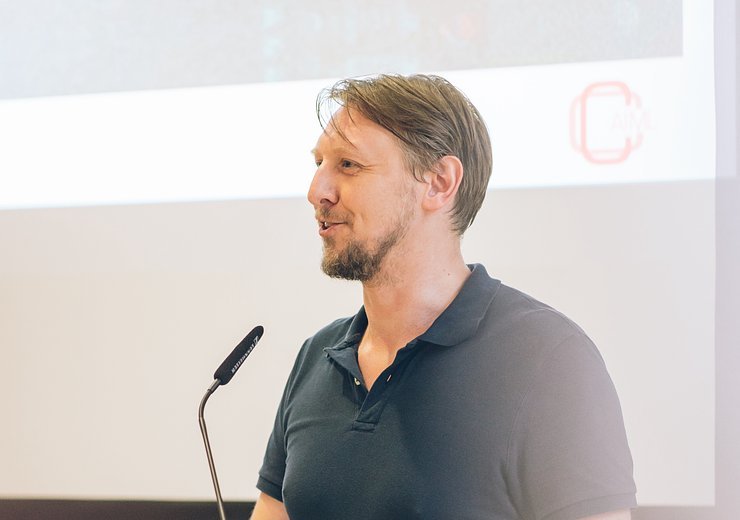The Vienna Manifesto on Digital Humanism: achievements, outlooks, perspectives
On September 2, we celebrated 5 years of the Vienna Manifesto on Digital Humanism. Read all about its achievements, alliances, collaborations, and what’s next.

Picture: Amélie Chapalain / TU Wien Informatics
On September 2, we celebrated the 5th anniversary of the Vienna Manifesto on Digital Humanism, highlighting the successes of the Digital Humanism initiative and charting future directions. The event showcased the growing impact of Digital Humanism on the global discourse around technology and society and the collaborative efforts needed to responsibly guide technological developments. The evening was opened with a few words by moderator Peter Knees, and a welcome address by Dean Gerti Kappel.
Since its launch, the Digital Humanism initiative has made significant strides: Its Manifesto has been translated into eight languages and signed by 45 countries. The initiative has hosted lecture series, workshops, and summer schools on topics like Artificial Intelligence, Machine Learning, ethics, democracy, and many other related topics. In 2023, the UNESCO Chair on Digital Humanism was established and is currently held by Peter Knees and co-chair Julia Neidhardt. There are also important alliances and collaborations that have developed over the past 5 years, most notably with the Institute for Human Sciences (IWM), the Digital Enlightenment Forum, the Web Science Trust, and the initiative People-Centered Internet. To commemorate the newly established alliances, renowned academics Dame Wendy Hall and Mei Lin Fung put the spotlight on the importance of Digital Humanism and its endeavors to the audience in video addresses.
The highlight of the celebration was a panel discussion, led by former Dean Hannes Werthner, which brought together experts from diverse domains and disciplines. The panel included Christiane Wendehorst (University of Vienna), George Metakides (Digital Enlightenment Forum), Noshir Contractor (Executive Director of the Web Science Trust), Veronica Kaup-Hasler (City of Vienna) and Jens Schneider (Rector of TU Wien), all sharing their perspectives and outlooks on Digital Humanism. The panel emphasized the interplay between politics and digital humanism, stressing the importance of including digital humanism in technical fields and fostering collaboration between the natural sciences, social sciences, and humanities.
The Digital Humanism initiative has been supported by the Vienna Science and Technology Fund (WWTF), the City of Vienna, the Vienna Business Agency, The Austrian Research Promotion Agency (FFG), The Federal Ministry for Climate Action, Environment, Energy, Mobility, Innovation and Technology, the Federal Ministry for European and International Affairs, the United Nations University Institute in Macau, the Association for Computing Machinery, IEEE, EURIDICE, UNESCO, IWM, the Digital Enlightenment Forum, Informatics Europe and the Wiener Zeitung. These partnerships have been essential in advancing the goals of Digital Humanism and building a robust network to foster exchange and collaboration between science, technology, and society.
We want to thank all of our partners for their continued support, and we also want to thank our panelists and attendees for the lively and interesting discussions!
Curious about our other news? Subscribe to our news feed, calendar, or newsletter, or follow us on social media.














